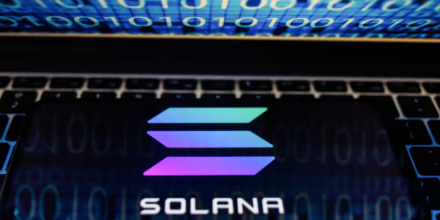Written by: Oluwapelumi Adejumo
Translated by: Saoirse, Foresight News
Texas has officially taken the first step and is poised to become the first state in the United States to list bitcoin as a strategic reserve asset.
On November 25, Lee Bratcher, Chairman of the Texas Blockchain Council, revealed that the state, with an economy valued at $2.7 trillion and ranking eighth globally, has purchased $5 million worth of BlackRock's spot bitcoin ETF (ticker IBIT).
He added that once the state finalizes the custody and liquidity framework required by the new reserve bill, a second $5 million allocation will be used to directly acquire bitcoin.
These two funds will build a bridge between the current institutional operation model and the future government model of "not only buying bitcoin, but also holding bitcoin."
Texas Creates the First State-Level Bitcoin Reserve Blueprint
Initially, Texas did not directly hold bitcoin on-chain, but chose IBIT as an entry point. For large funds wishing to allocate bitcoin within familiar regulatory and operational frameworks, IBIT has become the default choice.
The legal basis for this purchase is Senate Bill 21—signed by Governor Greg Abbott in June this year, which officially established the "Texas Strategic Bitcoin Reserve."
According to the bill's framework, as long as bitcoin maintains an average market capitalization of no less than $500 billion over 24 months, the state auditor is authorized to continue increasing holdings of the asset. Currently, bitcoin is the only cryptocurrency that meets this market cap threshold.
This reserve system is independent of the state treasury, clarifies the governance process related to asset holdings, and establishes an advisory committee responsible for risk monitoring and oversight.
Although the initial $5 million investment is small compared to Texas's overall fiscal scale, the logic behind this transaction is far more significant than the size of the funds.
Through this move, Texas is testing whether bitcoin can be formally included as a public reserve tool within a state-level financial system that already manages hundreds of billions of dollars in diversified funds.
Once the relevant operational processes are implemented, the second fund will be used for "self-custody of bitcoin"—a model that will have distinctly different impacts on asset liquidity, transparency, and audit processes.
Texas is currently designing a "sovereign-level custody" process, rather than adopting the traditional institutional brokerage model. The reserve system will require qualified custodians, cold storage facilities, key management protocols, independent audit mechanisms, and regular reporting systems.
These elements will form a replicable template that other states can directly adopt without redesigning governance structures.
Why Did Texas Choose BlackRock's IBIT?
Choosing to enter the bitcoin market through IBIT does not mean Texas prefers ETFs over native bitcoin; essentially, this is a pragmatic workaround based on operational realities.
IBIT has been on the market for only two years, yet it has become the most widely held bitcoin ETF among mainstream institutions. As the largest bitcoin ETF product to date, its cumulative net inflows have exceeded $62 billion.

(Image caption: BlackRock IBIT cumulative net inflow data, source: SoSo Value)
Moreover, most regions have not yet established public sector bitcoin self-custody systems, and building such infrastructure requires a series of complex processes including procurement, security modeling, and policy approval. Therefore, Texas is using IBIT as a "transitional tool"—allocating bitcoin assets through IBIT while perfecting the permanent reserve architecture.
This "detour strategy" is highly instructive, as it closely mirrors the allocation paths of other large funds.
Harvard University disclosed that in the third quarter of this year, IBIT had become one of its largest U.S. stock holdings; during the same period, the Abu Dhabi Investment Authority increased its IBIT holdings to about 8 million shares, a threefold increase; earlier this year, the Wisconsin pension system also allocated more than $160 million in the spot bitcoin ETF sector through IBIT.
The trend is clear: although different institutions have varying investment objectives, regional characteristics, and risk frameworks, they have all chosen IBIT as their tool. The core advantage of IBIT lies in its custody services provided by well-known intermediary institutions, simplified reporting processes, and compliance with the clear accounting requirements under the new fair value rules effective in 2025.
These conveniences make IBIT the "default entry point" for public and quasi-public institutions to allocate bitcoin. Texas's uniqueness lies only in the fact that its allocation of bitcoin through IBIT is a "temporary transition."
If Other States Follow, What Impact Will It Have?
The more critical question is: Is Texas's move an isolated case, or will it become a blueprint for other states to follow?
Bitcoin analyst Shanaka Anslem Perera stated:
"This chain reaction is foreseeable. In the next 18 months, it is expected that 4 to 8 states will follow suit, with a combined reserve fund scale exceeding $1.2 trillion. In the short term, driven by the 'herd effect,' institutional inflows are expected to reach $300 million to $1.5 billion. This is not speculation, but a game theory practice that is already happening."
Currently, states with similar political stances, such as New Hampshire and Arizona, have enacted bitcoin reserve-related laws—regarding bitcoin as a strategic asset to hedge against global financial system risks.
More states may join this trend in the future: after the new accounting standards eliminated the previous punitive "mark-to-market" provisions, these states can use structural surplus funds to allocate bitcoin and achieve asset diversification.
In addition, the impact of state governments participating in the bitcoin market goes far beyond "symbolic significance." ETF purchases do not change the circulating supply of bitcoin, as the trust structure does not remove bitcoin from the liquidity market when issuing and redeeming shares.
However, "self-custody" will have the opposite effect: once bitcoin is purchased and transferred to cold storage, it exits the tradable liquidity pool, reducing the supply of bitcoin available to exchanges and market makers.
If Texas expands its bitcoin reserve from the initial $10 million, the above differences will have a significant impact. Even if the scale of state-level demand is not large, it will introduce an entirely new class of buyers—participants whose behavior is counter-cyclical to "noise traders" (referring to investors or trading entities in financial markets who do not trade based on rational analysis, real market information, or fundamental logic, such as company earnings or macroeconomic data, but are driven by irrational factors), and who do not frequently adjust their positions.
This impact is more like a "stabilizing anchor" rather than a source of volatility. If other states adopt similar policies, the elasticity of bitcoin's supply curve will further decrease, and price sensitivity will increase.


